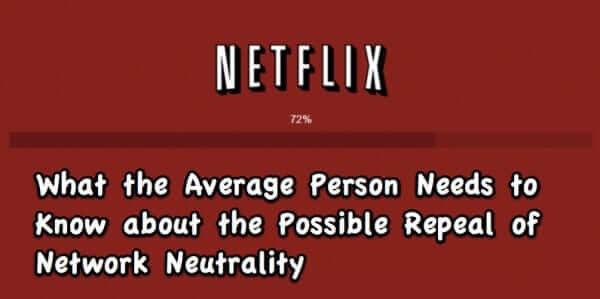
As the frenzy over the FCC’s December 14, 2017 vote on whether to repeal the Open Internet Order (OIO), which is being equated to the end of Net Neutrality, reaches a fevered pitch, here’s what the average Internet user needs to know. In our view, the furor over the possible (some say inevitable) repeal is akin to the Y2K hysteria, and the actual outcome probably just as anticlimactic. The sky is not going to fall.
The Open Internet Order is actually the thing upon which the FCC is going to vote to repeal on 12/14/17. It is a vote on the OIO itself although, yes, the OIO does address what has come to be known as network neutrality. Specifically, in the Executive Summary, the OIO states that:
Threats to Internet op enness remain today. The record reflects that broadband providers hold all the tools necessary to deceive consumers, degrade content , or disfavor the content that they don’t like.
The 2010 rules helped to deter such conduct while they were in effect. But, as Verizon frankly told the court at oral argument, but for the 2010 rules, it would be exploring agreements to charge certain content providers for priority service.
Indeed, the wireless industry had a well-established record of trying to keep applications within a carrier-controlled “walled garden” in the early days of mobile applications. That specific practice ended when Internet Protocol (IP) created the opportunity to leap the wall. But the Commission has continued to hear concerns about other broadband provider practices involving blocking or degrading third -party applications.
That sounds pretty dire, so why do we say that the sky is not going to fall? First and foremost, these are all administrative actions, being taken by an agency which is tasked with overseeing communications (that’d be the first C in FCC, which stands for Federal Communications Commission). This means that if the sky did start to fall, the FCC can prop it back up. In other words, there are checks and balances available so that if certain large providers of Internet services do start to take anti-competitive measures, they can be slapped back into place.
It’s helpful to think of the providers as dogs in a dog park, and the FCC action as taking their leashes off so that they can play freely. If they start to fight, or to threaten the safety of the other dogs, the FCC can always put their leashes back on.
Now, to be fair, those who are up in arms over the repeal of the OIO feel that the 98 pound weakling poodle (to mix, if not completely strangle, the metaphor) may succumb to a lethal bite to the jugular before the FCC can releash that monster doberman (with apologies to dobie owners out there – we know that dobies are actually very sweet animals).
What this all boils down to is the age-old question of whether lack of regulation will lead to healthy competition which may benefit the consumer, or will lead to companies being able to charge whatever they want, to whomever they want, however they want, to the detriment of the consumer.
Those concerned about the repeal of the OIO say that it will lead to large providers such as Comcast and Verizon creating different rate schedules for different types of content, and indeed different types of customers.
Moreover, there are large areas of the U.S. where there is no competition – there is only one service provider, and people in those areas understandably are concerned about those providers being unregulated and allowed to charge whatever they want, in whatever tiers, to whomever they want.
Those who support repealing the OIO – which was only passed two years ago, in 2015 – say that there was no such problem before the OIO went into effect, and that in order for a healthy competitive market to thrive providers need to a) be able to compete freely, and b) not have to let huge bandwidth users pay no more than those who barely register on the bandwidth-use radar.
So who is right?
Everyone.
If the OIO is repealed, sure big providers could start charging different rates for different services and individuals. They could do it greedily, to the detriment of the average Internet user; or they could do it responsibly, requiring large bandwidth users to pay for the privilege of being delivered at the same speed as the individual who doesn’t impact the system nearly so much (in turn, in theory, that additional payment will fund the expansion of the system infrastructure to support that increased bandwidth and speed).
If the OIO is not repealed, the average user will see no appreciable change as compared to any of the big boys, and that also means that providers may be hamstrung to improve their networks to increase capacity without those big boys who are part of the capacity problem having to contribute to the remediation of the problem that they are, in part, causing.
So what can you, the average Jane or Joe, do in order to register how you feel – one way or the other – about the upcoming vote?
There is a site that was put up to allow you to easily tell congress how you feel. It is a pro net neutrality site called Battle for the Net.
There is no pro repeal site that we could find, however you can also use the Battle for the Net site to show your support for the repeal, as it’s basically a “tell your congressional representatives how you feel about a repeal” site.
The Internet Patrol is completely free, and reader-supported. Your tips via CashApp, Venmo, or Paypal are appreciated! Receipts will come from ISIPP.









